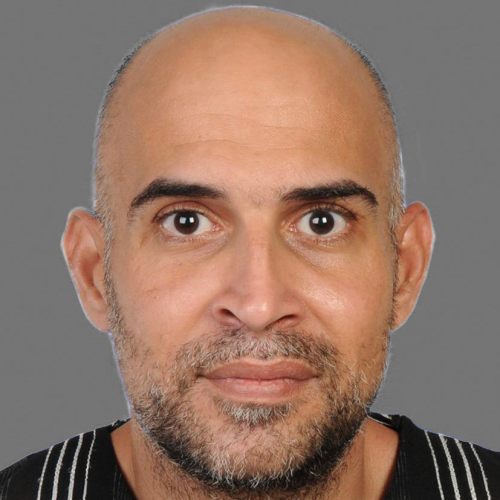John Elias Dabis
Co-Founder of Al-Beit
Born in 1979 in Houston, Texas, John is a descendant of a Yemenite Christian Palestinian family. He belongs to the Al-Sharaka clan, one of the 7 original clans who established the city of Ramallah during the Ottoman period in the 15th century during the Ottoman rule in Palestine.
At 14 years of age, he moved to Palestine with his family in 1994, one year after the signing of the Oslo Accords. During the culture shock of the move from East to West, he witnessed many things he despised, mainly the hatred due to the conflict that still exists today. That same year, he met with a group of Palestinians and Israelis claiming to want to fight passively for change under the umbrella of the worldly funded organization Peace Now. The following week, Peace Now invited him to a non-violent protest where he got beaten and arrested by IDF soldiers, and all the organization did with their unlimited funds was take pictures and wish him luck. From that moment on, he continued to hang out with Israelis even though he lost hope in anything related to the institutionalized peace industry.
Fast forward to the year 2000, John became a journalist during the incursions of the Israeli military in the West Bank covering all types of tragedies happening by both sides, until 2001 where he was attacked by the IDF in a place he wasn’t supposed to be near Jericho. A canister of some kind of gas was thrown into his car and the next thing he could remember was being woken up by the Star of David military ambulance. He began feeling foreign sensations 2-3 days after inhaling the gas, and to this day he’s in a wheelchair with an untreatable but manageable neurological disorder.
How and why did I co-found Al-Beit?
“In the year 2014 while I was surfing Facebook, checking out different political discussion groups dealing with the conflict, I noticed interesting writings without hatred in a Facebook group, so I decided to contact this random Israeli guy, Inon Dan Kehati, and soon found out our ideas where so similar. Hours turned into days that turned into weeks, and we eventually decided to create an organization that would not be controlled or swayed by any foreign influence or donations of the West. We called it The Home to signify that those living in the Land and therefore in our Home, will be the ones who influence this organization as the collective voice of the people of the Land.”
